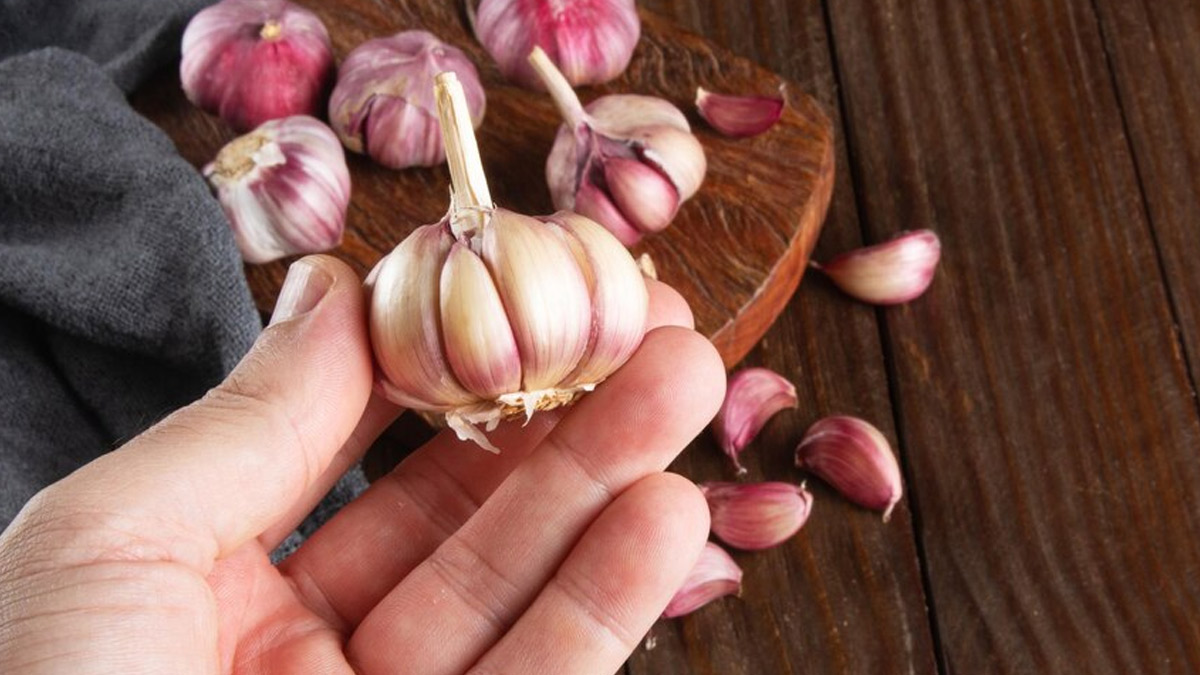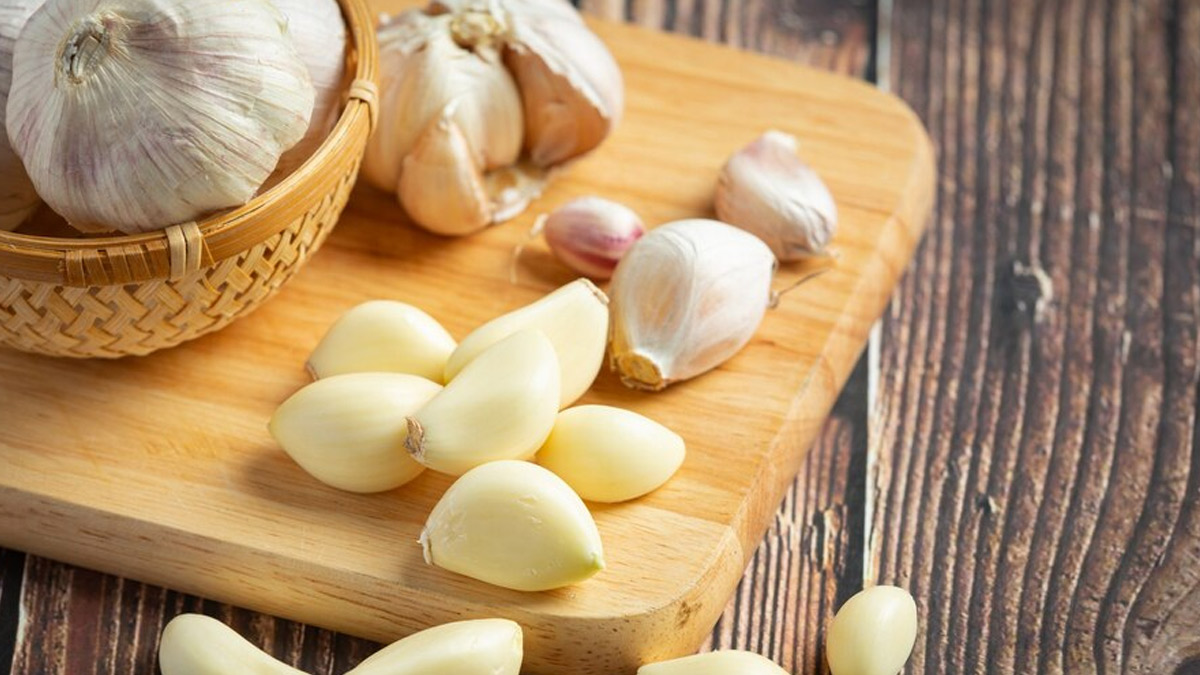
Garlic, a staple in kitchens worldwide, boasts not only a pungent flavour but also a reputation for health benefits. From boosting the immune system to lowering blood pressure, garlic's potential is vast. However, some practices surrounding garlic consumption raise questions, particularly eating it on an empty stomach.
Table of Content:-
While Instagram reels and TikTok health influencers have been claiming that it is the secret ingredient for healthy skin and health, it's crucial to understand the potential downsides before joining in on any dietary fad.
Health Benefits Of Garlic
Garlic's health benefits stem from its unique composition. According to a study published in the Avicenna Journal of Phytomedicine, garlic contains allicin, a sulfur-based compound formed when garlic is chopped, crushed, or chewed. Allicin exhibits antimicrobial and antioxidant properties, potentially aiding in various health aspects. This study by researchers from the Shefa Neuroscience Research Centre suggests garlic may contribute to:
- Immune System Function: Garlic might increase the activity of immune cells, helping fight off infections.
- Reduced Blood Pressure: Garlic consumption may help lower blood pressure, particularly in people with high blood pressure.
- Improved Cholesterol Levels: Garlic may decrease bad cholesterol and increase good cholesterol.

Eating Garlic Clove On Empty Stomach
While garlic offers potential benefits, consuming it on an empty stomach can lead to digestive discomfort for some individuals. An article by Ellen Tattelman, MD, published in the journal ‘American Family Physician’ explains how:
- Gastric Irritation: Garlic's strong compounds can irritate the stomach lining, especially when there's no food to buffer them. This can cause heartburn, nausea, and indigestion.
- Increased Acid Production: Garlic can stimulate the stomach to produce more acid, further aggravating heartburn in those prone to gastroesophageal reflux disease (GERD).
- Diarrhoea: The sulfur compounds in garlic can have a laxative effect, leading to diarrhoea, particularly in sensitive individuals.
Also Read: Here's How Garlic Juice Can Help You To Prevent Tuberculosis

Who Should Avoid Garlic on an Empty Stomach?
If you experience any digestive discomfort after consuming garlic, it's best to avoid it on an empty stomach altogether. Additionally, certain individuals should be particularly cautious:
- GERD Sufferers: Garlic can worsen GERD symptoms like heartburn and acid reflux.
- People Taking Blood Thinners: Garlic can act as a blood thinner, so consult your doctor before increasing garlic intake if you're on blood-thinning medications.
- Those With Sensitive Stomachs: If you experience digestive issues easily, avoid raw garlic on an empty stomach.
Maximising Garlic's Benefits
So, how can you enjoy garlic's potential benefits without the downsides of empty stomach consumption? Here are some tips:
- Eat It With Food: Consume garlic as part of a meal to allow food to buffer its strong compounds.
- Cook It Gently: Allicin, the beneficial compound, is most potent when garlic is raw. However, gentle cooking methods like simmering can help preserve some of its properties while reducing digestive discomfort.
- Consider Supplements: If raw or cooked garlic causes issues, discuss garlic supplements with your doctor.
Also Read: Garlic Juice For Health: Expert Lists Benefits of Consuming This Juice Daily
Takeaway
Garlic offers a treasure trove of potential health benefits. However, consuming it on an empty stomach can lead to digestive discomfort for some. Listen to your body, and if you experience any negative effects, adjust your garlic intake or consumption method. Remember, moderation is key, and consulting your doctor before drastically increasing garlic intake is always recommended. By incorporating garlic strategically into your diet, you can reap its potential health benefits without the downsides.
Also watch this video
How we keep this article up to date:
We work with experts and keep a close eye on the latest in health and wellness. Whenever there is a new research or helpful information, we update our articles with accurate and useful advice.
Current Version